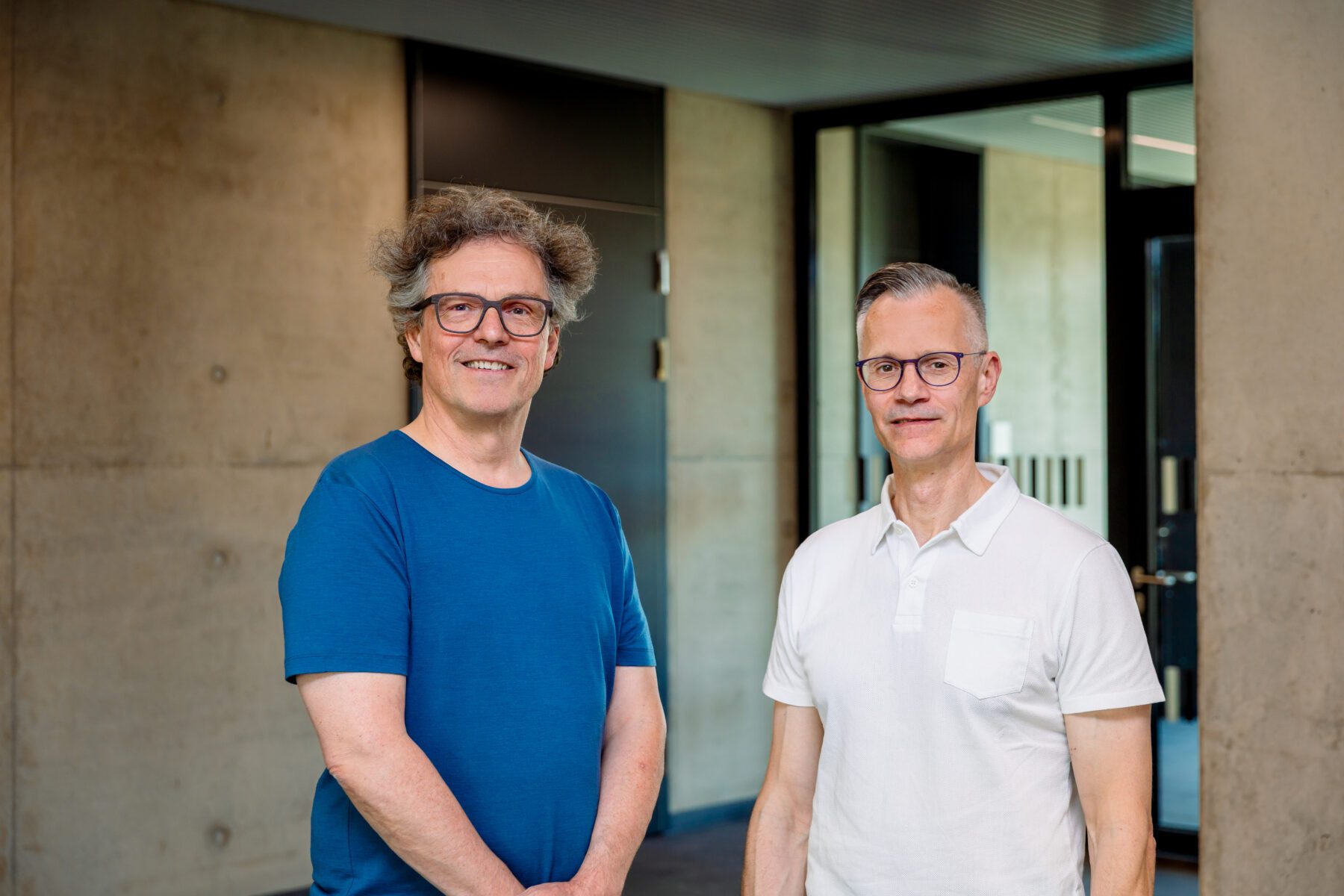
3 Questions for Potassco Solutions – »We Have Been Driving AI Science Forward for Decades«
Artificial intelligence is omnipresent. Current systems such as ChatGTP are based on language models that analyse large volumes of text. The Potsdam-based company Potassco Solutions, a spin-off of the Institute of Informatics and Computational Science at the University of Potsdam, has developed a programme that solves complex problems on the basis of focused knowledge. This enables companies to utilise the experience of their employees to find optimal solutions for their processes—for example for shift or timetables. Potassco Solutions founders Klemens Kittan and Professor Torsten Schaub talk about the unique functionality of their software and open source as a growth strategy.
With your start-up Potassco Solutions, you market the AI system Clingo as a problem solver for complex tasks in industry. What does your software do that humans cannot?
Schaub Clingo is a generic system that can solve so-called combinatorial optimisation problems. These are classic problems of the modern world in which many decisions have to be made under framework conditions. A local craftsman can still provide guidance to his two or three employees based on experience. However, this is no longer possible for large companies with thousands of employees. Decisions and their dependencies soon become unmanageable: if you only have to make five decisions with ten options each, that’s already 10,000 possibilities. This keeps increasing and quickly exceeds people’s powers of comprehension. Shift plans, for example, become illegal or inefficient because the people in charge no longer have an overview of all the constraints.
Computer science normally approaches such combinatorial problems by programming an application that contains the solution to a specific application problem. Our system, on the other hand, separates the problem from the solution. The problem description usually comprises only two pages, which a mechanical engineer or a business economist can formulate in the way his or her company needs it. Clingo then delivers the appropriate solution.
Kittan For example, we have a co-operation with a Bavarian manufacturer for beverage filling plants. This involves the configuration of bottling machines with millions of variables. Depending on the customer—whether apple juice is to be bottled or lemonade canned, for example—the company builds very different machines that are customised down to the smallest screw. Clingo has already helped the customer to make great progress in expanding its production capacities. This involves designing the machines in such a way that the time lost between bottling apple juice and orange juice is minimised. Or answering questions such as: What needs to be filled first to shorten the cleaning phase? Which pumps should be installed? And what is the optimum throughput?
We have also used Clingo to optimise timetables and shift schedules for the Swiss Federal Railways. We are currently cooperating with hospitals in Brandenburg that want to optimise their shift schedules. In principle, there are no limits to the areas of application for Clingo.
Clingo was an open source product right from the start. In spring 2023, you founded Potassco Solutions, which now has 22 employees — how was it possible to create a viable business model based on open source?
Kittan We have always seen Clingo as open source. We had the idea that over the years a community would form that could provide us with valuable feedback for further development. Someone who uses our system in practice may later come to us to solve a specific problem and make the system more efficient. We then support the customer in selecting the variables for a good problem description. Our business model is to enable companies to adapt the software to their processes as well as possible. The beverage bottler, for example, has completely converted its production systems to Clingo and will continue to work with us in the long term.
Schaub Our software has been downloaded several million times by now. We can no longer keep track of who is using it because it is freely available in so many app stores. In some cases, we only find out who is applying Clingo by chance because we receive inquiries—for example from Microsoft, Oracle, Siemens, the US Navy or car manufacturers in southern Germany.
Open source was a strategic decision for us because our software came from research and needed this maturing process in application in order to develop further. We get a lot of feedback via our community mailing list or GitHub, where people describe problems from the application side or suggest improvements that we hadn’ve not yet thought of. This makes the system more and more robust.
How do you want to help shape the future of artificial intelligence (AI) in the Potsdam Science Park?
Schaub We have been driving AI science forward at the University of Potsdam for decades. However, we at Potassco Solutions do not develop machine learning or large language models (LLM), which are currently dominating the AI hype. We focus on knowledge-based AI. Our technology can capture the valuable knowledge that companies possess. If employees have 20 years of operational experience, they can feed their knowledge into Clingo and create an assistance system that helps them to improve internal processes and make them fit for further growth.
At the same time, Clingo provides a guarantee that the proposed solution is actually correct and optimal. AI based on machine learning or LLM cannot guarantee such a thing. A car has to be built on the basis of engineering principles, not on the basis of ChatGTP.
Just as calculators and spreadsheets have become indispensable as assistance tools, our technology will be the first choice in the future for finding flexible solutions to individual problems based on knowledge. We hope that this will enable us to have an impact on society—and create jobs for the many highly qualified university graduates at the Potsdam Science Park.
This blog and the projects organised by Standortmanagement Golm GmbH in the Potsdam Science Park are funded by the European Union and the State of Brandenburg.